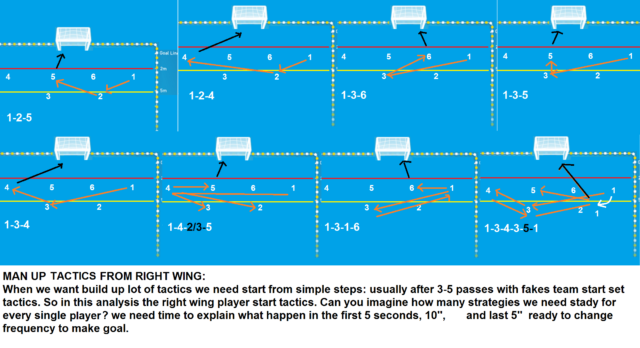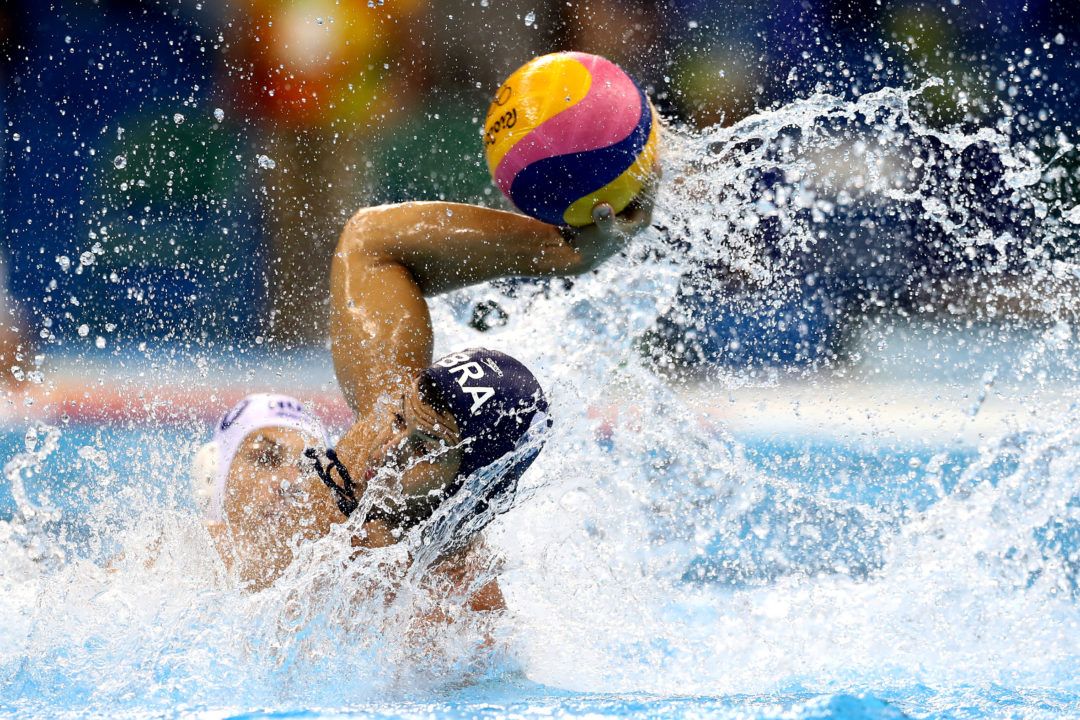Tactic is a key component of all team sports and it requires high coordination abilities. More specifically, in the case of water polo, players need to be able to coordinate in water.
But how and when should tactic be taught, in order for a team to be ready to score, as well as to defend and not concede a goal?
If you want to start teaching tactic, you need to first of all ensure that all players in the water have acquired the basics of water polo, as a mistake in passing the ball to a teammate who is attacking or a wrong defense of the goalpost might cause confusion and mistrust among teammates, and it might also make scoring or defending the goalpost harder.

So, when should tactic be taught? From Acquagoal ( 6-10) until Under 11, the main concept you need to pass on is that all players should attack and defend. The only exception is the goalkeeper – however, in this case, the athlete usually decides to play in this role on his/her own.
Why does it need to be so? First of all, you need to bear in mind that, since this is a team sport, each player needs to always support their teammates, both during an attack phase, trying to complete the action and score, and during a defense action, so that the team does not have to concede a goal.
This is a key, basic concept which will teach players that they need to trust their teammates. This will also allow other players to be able to rely on their teammates’ support during the game. So, let us stimulate our athletes to cooperate.
Furthermore, if you specialize your players too soon, they might not gain all the experience which will complete their psycho-physical development.
After Under 11, you can gradually start to attribute roles to each single athlete and you can start giving the first instructions required to build a tactic. The players will then have to play in their role during the match. You need to be careful not to attribute roles too soon, because if you specialize a player too soon this may become a limit, which is it may deprive them of the experience of playing in different roles. Furthermore, you would risk training these athletes for only one role, instead of granting a full, complete training. All athletes should be able to try different roles when they are young – thus they will gain a lot of experience, and will subsequently be able to understand and to choose the best role for themselves, which is the role which will allow them to achieve their full potential.
The basic water polo tactic can be taught with the simplest but, at the same time, most important training exercise – 1 on 1. This may seem like an ordinary training exercise, but in fact it is not, because it entails the use of all coordination abilities required by water polo, which is cycling with your legs, pressuring with your hands, finding your body’s center of gravity, pushing with your legs and pushing your opponent, developing creativity in overcoming your opponent, courage, sliding, etc. For this reason, this training exercise is essential at all ages, even among professional players.
Once your athletes have tried and acquired the 1 on 1 technique, the following types of exercises can be tried: 2 attackers and 1 defender, 2 attackers and 2 defenders, etc., until you reach a 6 on 6 tactic, as well as training in superior or inferior numbers. You should also pay special attention to 6 players without defenders, as this will allow you to provide suggestions to players without the stress of having to face defenders.
Training your players with the tactic of one more or one less player may turn out to be the turning point of a match. As a matter of fact, the outcome of a match can change if your players have the ability of leveraging on the additional player or of being able to defend with one less player.
Another basic aspect of tactic is the change in speed, which is often underestimated. During the creation of attack tactics, you need to be able to change the game speed, as this will allow you to surprise the opposing team and to pressure them and finally score.
A good tactic also requires knowledge of your opponent, as well as a pre- and post-match analysis.
Before each match, you should evaluate your opponents’ strengths and weaknesses: if you are aware of them, you can implement strategies which will favor your team.
Furthermore, you should always carry out a single player analysis.
Before and after the match, you need to interact with your players in order to understand their mood, and whether they were able to learn from their mistakes and to understand their strengths. This is also required because it will allow them to re-live the key moments of a match and, therefore, they will be able to make the necessary changes in future matches.
Before deciding which role to attribute to each player for a match, the coach will need to evaluate players’ performances during the training sessions. This will allow the coach to define a strategy, so that the team will be able to play cohesively.
Finally, it should be noted that, in water polo, like in all other team sports, the winning team is the one which is able to implement its tactic to overcome the opposing team in order to win the match.

Tactics can always be taught at any age; but what I object to in water polo is what I saw at both the HaBaWaBa festival for under 9, under 11, and under 13; and at the USA Junior Olympic competition, two of the largest events for young people in the sport of water polo. Almost every team in these competitions took the largest player on the team in put him/her at the center position. The role of the rest of the players was simply to pass the ball to the center. Hardly anyone else on the team was involved in the attack. At the age of 8-10 years old, coaches had already assigned positions based on size. What i would… Read more »
Check out the masters worlds still going on in Budapest. The team called Millennium is a 3 time Olympic champion one. It’s just beautiful how they play (Fri, Sat, Sun at 19:00 CET).
i am wathing U20 water polo world leage. I see high level like Senior teams.